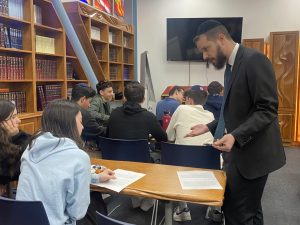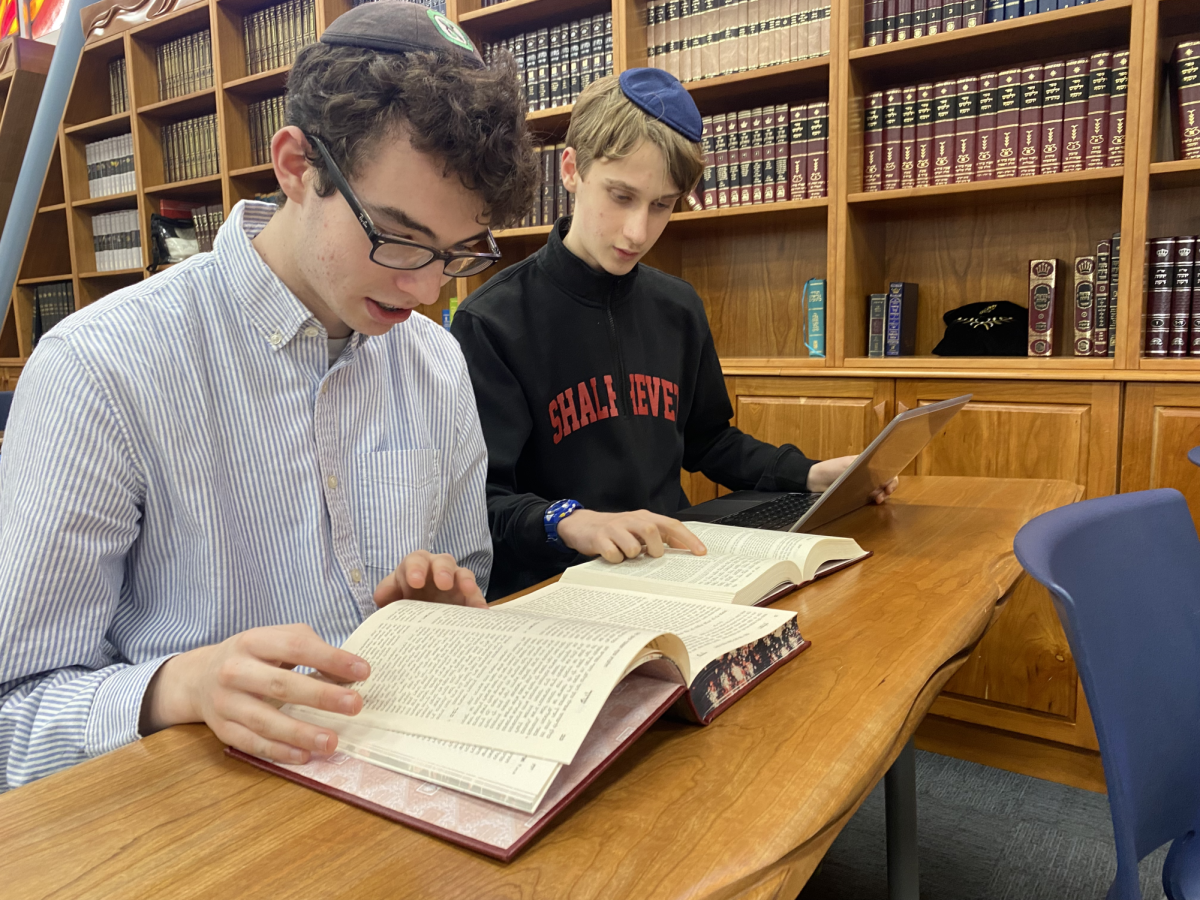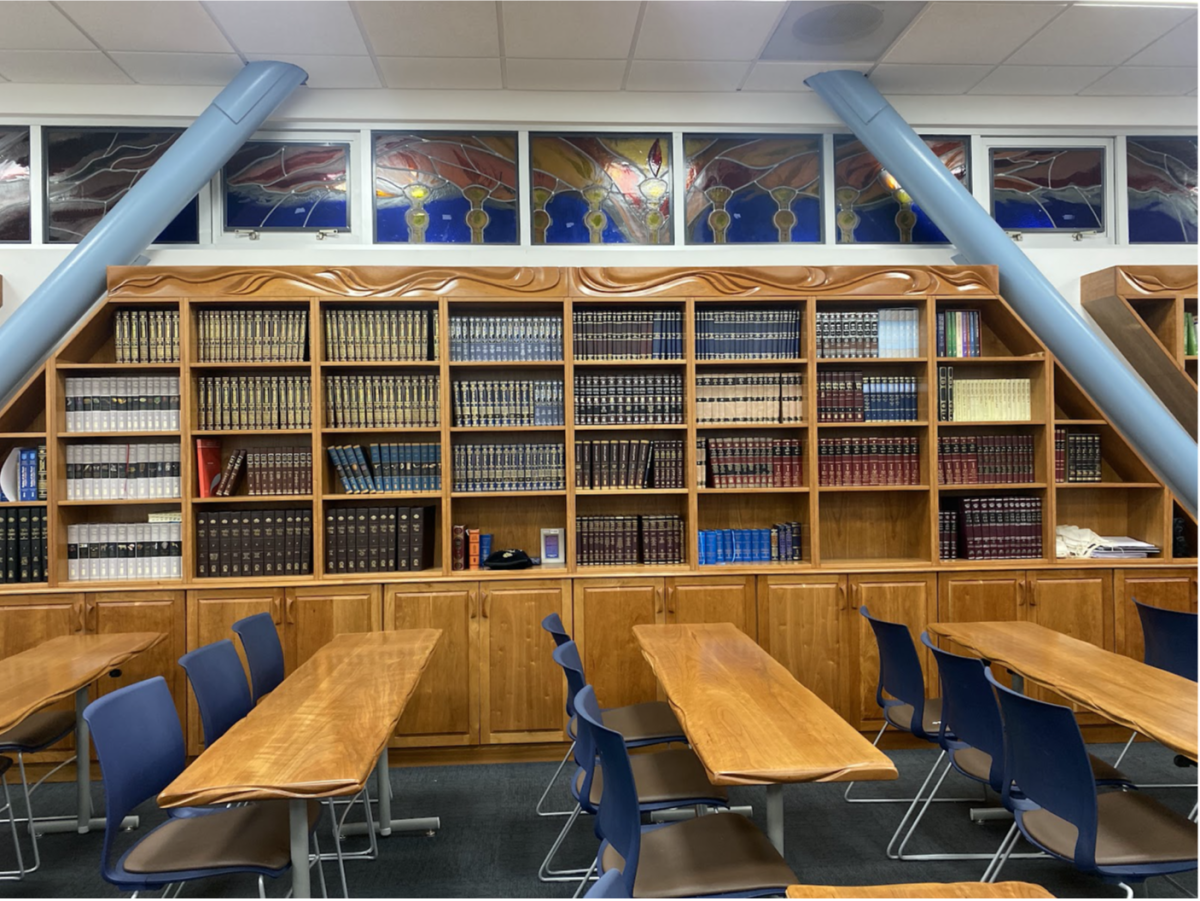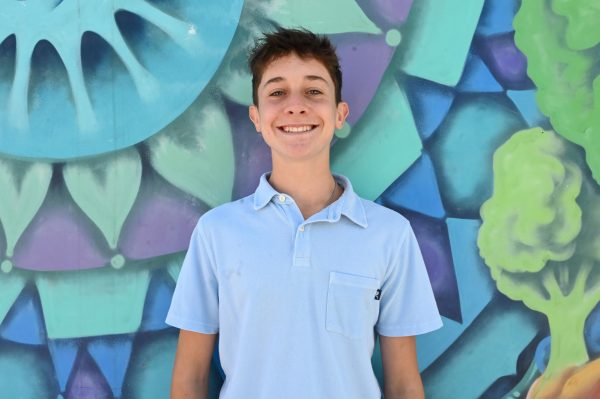After a one-year hiatus, Judaic Studies staff brought back the bi-monthly Night Seder program this year, enticing more than 30 students for weekly Torah learning after school – plus cholent and poppers – every other Thursday in the Beit Midrash.
School officials provide the pre-learning food, which is followed by a 4:45-6 p.m. shiur, or group learning session, led by Judaic Studies faculty and occasionally visiting guest speaakers.
Students often break up into chevruta (partner) learning with their peers. The shiurs usually involve the weekly Torah portion, upcoming holidays or concepts in Jewish law.
Attendance is open to all, and strongly encouraged for students in the Advanced Gemara Shiur (AGS). Occasionally, students break off into their AGS groups to review what they learned that day in class.
Rabbi Ari Schwarzberg, Judaic Studies teacher and 12th-grade Dean, has led the reintroduction of Night Seder.
“Night Seder is able to showcase that at the end of the day, that Talmud Torah is the most important thing in our lives,” said Rabbi Schwarzberg.
“We need to continue to have opportunities in our school that are promoting more advanced Talmud Torah and more opportunities for Talmud Torah.”
A common routine at Modern Orthodox learning institutions – at YULA Boys, for example, a one-hour Thursday shiur is mandatory for honors Gemara students every week – Shalhevet’s Night Seder provides a way for teachers and students to learn with one another in a non-classroom, and therefore more informal, environment.
Rabbi Yagil Tsaidi, Shalhevet’s Mashgiach Ruchani and an 11th-grade Gemara teacher, said it provides an opportunity for learning for the sake of learning, and not for a grade.
“There’s educational Torah and then there’s Torah lishma — that’s what Night Seder is going for,” Rabbi Tsaidi said.

However, as an incentive to join, AGS students receive credit to improve their grades in their 9 a.m. morning Gemara shiur.
“There isn’t a set policy,” said Ms. Malka Popper, Judaic Studies Principal. “Some teachers treat it as an assignment, some teachers treat it as extra credit, and others have treated it like an attendance grade.”
Non-AGS Students are welcome to join the program but do not receive any extra credit for their attendance. Leeyah Klynman, a senior who is not part of the AGS track, has attended several Night Seders and appreciates the program, even though she doesn’t love every session.
“At a lot of Night Seders, I’m really intrigued about what we are learning [even though] sometimes I’m not so interested,” said Leeyah. “Night seder has definitely helped spike my interest in certain areas of Torah.”
Leeyah said the food, which the school purchases from Lieders, contributes to her experience.
“I don’t think that having food affects me coming in the first place,” said Leeyah. “But after school when you’re really ‘hangry,’ you don’t want to sit there for another hour and listen to people speak.”
Ms. Popper said there was a reason for emphasizing AGS students.
“We wanted to make sure that we had an audience,” Ms. Popper said in an interview Feb. 22. “Part of building a culture and program is finding the people who we call early adopters. And the people that have already demonstrated commitment to something are people in AGS, who are already accustomed to making an extra commitment to learning Torah.”
A Google Form survey conducted by the Boiling Point found that out of 36 responses, three-quarters of those who have attended Night Seder were AGS students. Attendance varies, with 16.7% of responses having attended every time.
Etan Lerner, a sophomore currently in Rabbi Schwarzberg’s AGS Plus Gemara class, views Night Seder as a positive.
“I think that it is crucial for a Modern Orthodox school like Shalhevet to run and maintain a weekly Night Seder program,” said Etan in a WhatsApp interview.
“It is so important to make sure that kids are being taught Torah in ways we wouldn’t find in our standard Lahav and Gemara curriculums. Doing so will inevitably increase both skills and love of Torah.”
For Etan, the grade boost offered is essential for bringing non-avid learners to Night Seder but is not a personal incentive for him to attend.
“I would certainly continue going to Night Seder if doing so no longer gave extra credit in my Limudei Kodesh classes,” said Etan. “I do, however, think that the extra credit boost is important because it inspires some who normally wouldn’t be spending their evenings learning.”
For Rabbi Tsaidi, the goal in targeting AGS students for Night Seder is to develop a strong learning culture among the school’s most involved learners to set the program up for success in the future.
“In the first iteration of something you want it to start out strong so we wanted to build a real culture and make a serious culture before you invite everyone else,” Rabbi Tsaid said.
“It’s important to experience these things with the core people who are invested in it, and then you build out. So hopefully by next year, there will be a culture of Night Seder for everyone.”








